137. On the passing of Claudia Alta Taylor Johnson
Back on February 13th I wrote, inter alia, of Lady Bird Johnson, formally Mrs. Lyndon Baines Johnson, and formerly Claudia Alta Taylor. Her husband was the 36th President of the United States, as well as one the most revered and most hated, depending on who you were, and sometimes people both revered and hated him. That was not the case with Mrs. Johnson, who died yesterday at the age of 94 at her home in Austin, Texas. Below, reprinted in full, is an editorial in today's Washington Post, page A22, on her life and death.
*****
LYNDON B. Johnson once said of his wife that, given the choice, people would probably rather vote for her than for him. LBJ, of course, was not one to offer voters such choices, but he was probably right about Lady Bird Johnson's popular appeal and abilities. She would have made a good leader at the national level, perhaps a great one. She was an extraordinary first lady, public-spirited, principled and steadfast when it came to those causes advanced by her husband that she thought most important -- first and foremost the civil rights legislation that stands as one of the greatest achievements of any American president.
Mrs. Johnson had been away from Washington for nearly 40 years by the time she died yesterday at the age of 94. There are by now many who know her only vaguely as a figure from history, the smiling wife in the president's shadow, with that funny name (a childhood endearment bestowed on Claudia Alta Taylor by a nursemaid). Look around a bit, starting here in our capital city, and you'll see much more. Her most visible legacy is the millions of flowers she caused to be planted all over the city, in tourist spots and bleak neighborhoods, by roads and public buildings, in parks and on other patches of land where nothing had bloomed before and where today it would be unthinkable not to have a bed of flowers. This was her "beautification" program, a cause that she continued to pursue in places all over the country long after she left the White House. The effort went beyond planting flowers in the cities to improving the national parks and alleviating some of the uglier manifestations of commerce and industry: strip mining, overhead power lines, litter. One of her greatest successes -- the one most bitterly fought by business interests -- was federal legislation restricting billboards on federal highways.
Lyndon Johnson stood behind her on that bill and helped push it through to passage. It was a well-deserved tribute to a woman who had been indispensable to him in his rise to power and in much of what he achieved thereafter. She devoted herself entirely to this difficult, driven man and undoubtedly influenced him for the better in many ways. She knew how to temper Lyndon Johnson's rages and assuage the grievances of people he had offended. She brought a gentle and humane sensibility to the White House. Her husband trusted and listened to her, and perhaps he might have benefited had she ventured into foreign affairs -- but for the most part she did not.
She stood squarely with Lyndon Johnson on the great domestic issues of the day, none of which were greater, of course, than civil rights. This genteel Southern woman was reviled and insulted by some and booed at campaign gatherings in the South, but she never wavered in her advocacy of the civil rights legislation that finally, a century after Emancipation, created the foundation for equal treatment of every American under the law.
"Lady Bird brought to the White House dignity and warmth and grace," said President George H.W. Bush at a White House ceremony in 1990. "And she was never on stage, never acting out some part, always the same genuine lady no matter what the setting." It was because of these qualities that her presence at the center of the nation's great battles over voting, public accommodations and other vital issues of the day was so important. She was a first lady who deserves to be remembered, and of course she is and will be every year, when springtime comes around.
*****
Back when I wrote that entry, I spoke of some land which runs between Lexington Road and I-64, between the railroad overpass and the Grinstead Drive interchange. As I-64 was being platted through this area, consideration was given to proposals under the Highway Beautification Act for the preservation of this stretch of land. The Act which preserved this land and countless other acres throughout the country came to be known as the Lady Bird Johnson Act. She was the original one-woman Operation Brightside planting wildflowers and trees in places no one thought they should be or might grow, defying both ideas. Jerry Abramson's alleged penchant for begonias and lilac bushes has nothing on Mrs. Johnson, who began such work while Hizzoner was still an undergraduate student at Indiana University in Bloomington.
As the Post editorial points out, this is one just one facet of her work as First Lady, work which continued well after Mr. Johnson's term ended. She stood beside her husband as he introduced his Great Society programs to a country at war abroad in Vietnam, and at home with itself, especially over the issue of Civil Rights for African-Americans. Johnson's handling of the latter should have given him the moniker which President Clinton later had said of him wittingly, "He was America's first black president." Johnson carried out programs John F. and Bobby Kennedy gave lip service to as president and attorney general, but never fully gave their heart and souls to. Johnson did. In his Inaugural Speech on January 20, 1965, he said, "Justice requires us to remember that when any citizen denies his fellow, saying, "His color is not mine," or "His beliefs are strange and different," in that moment he betrays America." LBJ truthfully believed in the diversity of peoples who make up our Republic. And he worked hard to create laws which began (not for the first time) America's journey toward full and complete citizenship - civil and human rights - for all of her people, a journey still underway and deeply in need of another great leader like Johnson.
But, on the other hand, Johnson (with Mrs. Johnson at his side) faulted greatly in his handling of America's involvement in the VietNam War. I am just a little too young to clearly remember this war, although I do recall watching the news everynight while my family ate supper at the kitchen bar. The five of us (Mamaw and me on one side; Papaw, my brother Kevin, and my Mom on the other) sat at the bar, with a small TV perched atop a portable dishwasher which sat against the wall perpendicular to the bar. It was at the supper table watching the news that I learned from my grandparents and mother about politics, unions, education, reading, and wars, including World War Two, in which my grandfather had served. But I honestly don't remember his take (or anyone else's at the table) on this matter. Nonetheless, the war effectively ended Johnson's political career, precluding a run at a full term in 1968. His reputation as a great leader on the domestic front has never recovered from his failure in the foreign field.
America is currently living through an era which people from that generation say has many parallels to this one, vis-a-vis a war. President Bush's War in Iraq is often called Bush's VietNam. I have said this myself. I am one of those who believe the president's handling of the war is bad, the war itself is bad, and the reasons we entered it are bad, and the current handling of the war by the (six-month old) Congress now in the hands of the Democratic Party thanks to a surge against the president and his war, is also bad - or at least not good enough. There are certainly other differences between Johnson and Bush. Johnson did serve in the military, receiving the Silver Star. His mission took him to the southwest Pacific, reporting to General MacArthur in Australia and New Guinea [although to be real frank, without a map I do not know exactly where New Guinea is]. Johnson also had a domestic program which didn't deprive people of rights, didn't spy on their phone calls and emails, and one whose attorneys general were thought to be competent in their fields (Robert Kennedy, Nicholas Katzenbach, and Ramsey Clark). Bush's domestic program is . . . . -- well, whatever it is if it is anything, is bad. Truthfully, Bush's domestic agenda is one which served the interestes of the Gas, Oil, and Petroleum industries, appropriate for a member of the GOP. And to label his attorney general, Alberto Gonzales, as anything other than an immoral liar, in over his head at the Department of Justice, and totally unfit as an Attorney General, would be false.
Yes, Johnson and Bush both have a war to hang around their heads as an albatross. Bush has that one and several more.
I will not pass judgment on Mrs. Bush and what history will have to say about her in the future. But historical judgment has now been passed on Lady Bird Johnson. She was a wonderful person, dedicated to improvements both to our lives on the earth and to the earth itself. May her soul and the souls of all who have passed on from this life Rest In Peace.


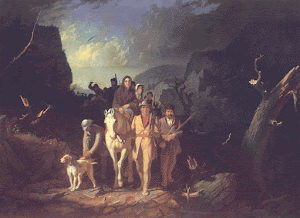



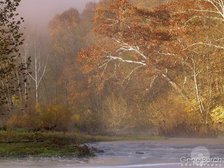








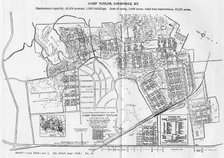
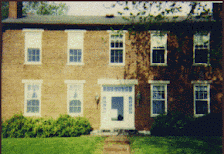

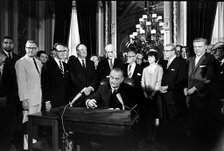

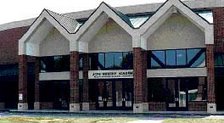
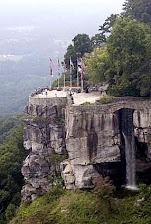

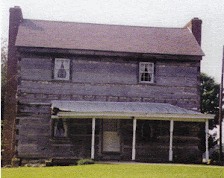
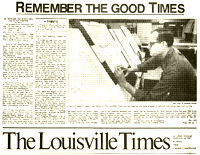
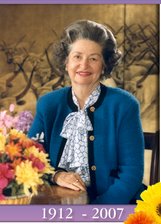

1 comment:
Mr.Noble: What a great post.I appreciate you giving credit where credit was due and also bringing up a very interesting point. Johnson was from Texas, Carter was from Georgia, and Clinton was from Arkansas? UMH. I see a political trend I do believe. I believe there is a lesson here for all Democrats wanting change. It may not come in the tidal wave that one wants, but when we choose to meet in the middle we still can accomplish many things.The most successful advocate for civil rights in Kentucky History did not come from the "Golden Triangle" but was a resident of Christian County,Edward T. "Ned" Breathitt.History has taught us that change comes slowly, but it does come.My point is much of Kentucky retains Southern Values for better or for worse and everyone must come to terms with that to win. Lady Bird did many great things to restore the beauty of our nation but Billboards when maintain properly help to create and drive business in Rural Kentucky. Business will not invest unless they can attract people from the interstates and parkways.With the exception of WWII wars have not ever been popular with the American people.It is suggested by historians that only one third of the population supported the revolutionary war? Korea was very unpopular. Television enhanced Americans veiw and understanding of war and they did not like it.I believe that most people from Rural and West KY don't like this war and are ready for it to end, but we also believe that we have a strong responsibility to support our troops and provide them with the resources that they need to stay alive and be prepared to answer any call given to them.As a former three star General at Fort Campbell once told me."We have two choices as a Nation in this world, We can feed people or we can fight them." I have never forgotten that.Great Post..Keep um coming.
Post a Comment